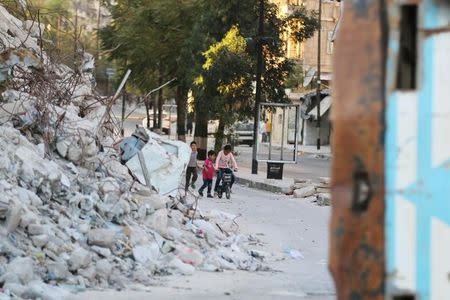Aid budgets under pressure as funds stretched to cope with refugees, say campaigners

LONDON (Thomson Reuters Foundation) - Governments are failing to meet the world's massive humanitarian challenges because aid budgets in many countries are being stretched to cover the refugee crisis, a leading anti-poverty group said on Sunday. Goals such as tackling disease and ending extreme poverty by 2030 may slip down the agenda as donor governments shift funds away from long-term development aid, The ONE Campaign said. The group's analysis of international aid budgets comes ahead of a major U.N. summit on Monday on tackling the refugee and migrant crisis at a time of record displacement. Of particular concern is the practice of counting 'in-donor' refugee costs whereby governments support refugees in their own countries with aid funds, the report said. This means less money available to spend on deadly diseases such as HIV/AIDS and malaria, it said. The ONE Campaign put the total amount of Official Development Assistance (ODA) spent within donor countries in 2015 at $13.9 billion. This is "changing the map of aid", it says, adding that last year more aid was spent in Germany than in Ethiopia. "The world is experiencing record levels of crises, yet as our (report) highlights, some countries are spending money intended for those living in extreme poverty within their own borders," said Eloise Todd, policy director of The ONE Campaign. "Refugees should absolutely get the support they need, but with domestic funds, not by cutting into lifesaving development funds." The report said there was a limited window to tackle HIV/AIDS, for example. "Tremendous progress has been made against this killer disease - but the world risks a resurgence of a more virulent form if investment if not stepped up soon," it said. The report called for an end to development assistance being used to fund 'in-donor' refugee costs and said aid budgets should be redesigned so that they no longer depend on short-term annual financing cycles and political pressures. (Reporting by Tom Gardner; Editing by Ros Russell; Please credit the Thomson Reuters Foundation, the charitable arm of Thomson Reuters, that covers humanitarian news, women's rights, trafficking, corruption and climate change. Visit news.trust.org)

